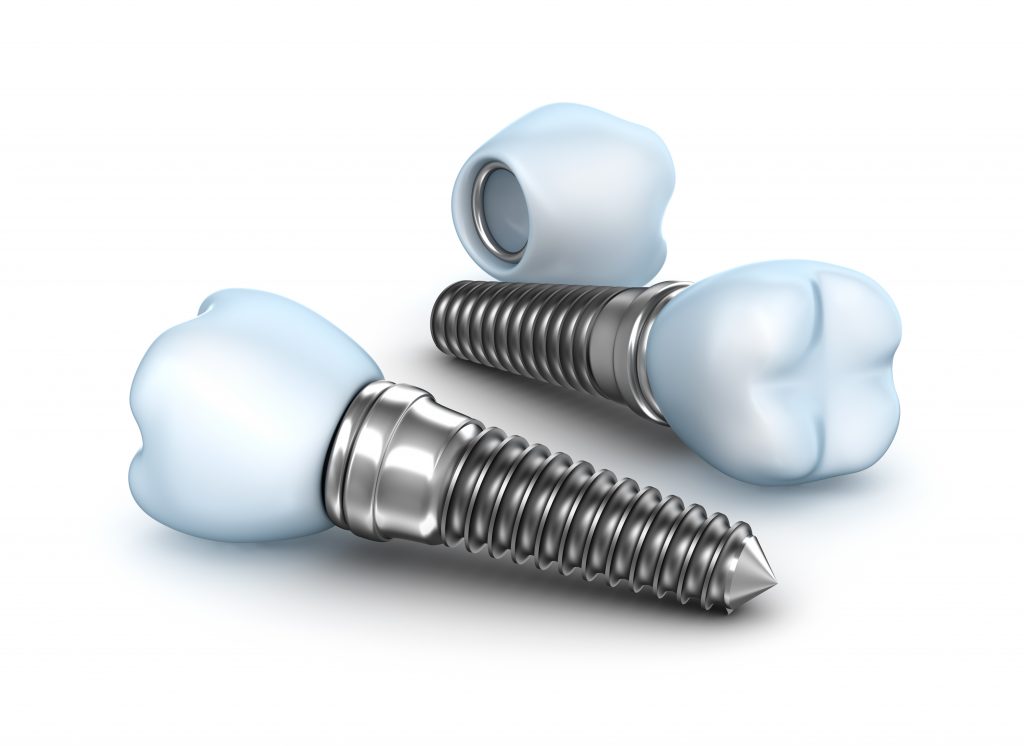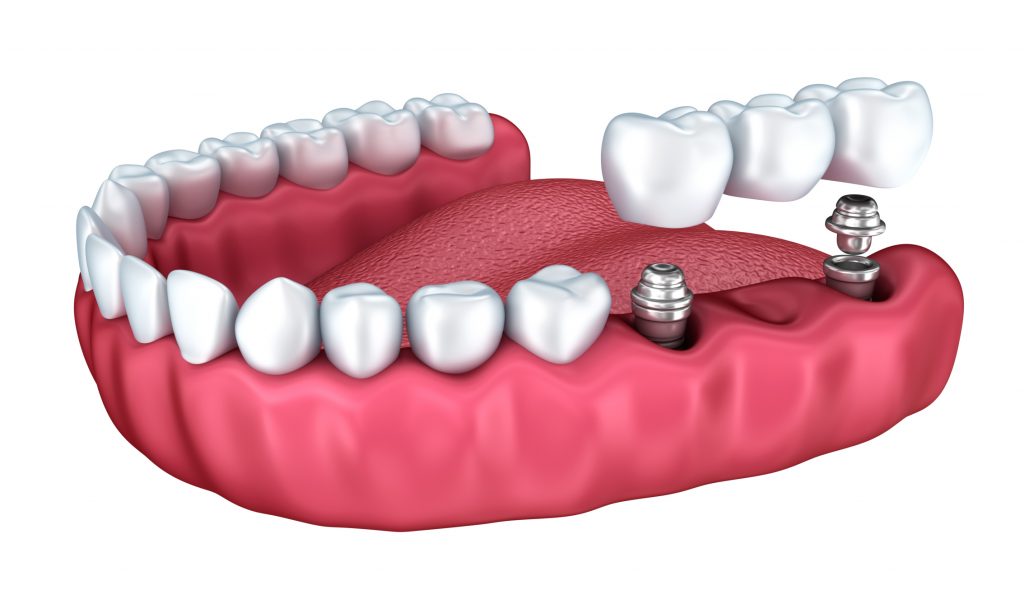
It’s inevitable. As we progress in age, it is possible that many of us will require dentures, especially when we don’t practice good dental hygiene. Like they always say, “You don’t need to take care of all of your teeth, just the ones you want to keep.”
If you find that you are on the side of needing dentures, please realize that you may find that wearing dentures to be cumbersome, as they tend to need a lot of maintenance and have a tendency to shift around inside the mouth. This ill-fitting fix to our dental issues not only leads to discomfort and soreness but can even affect our self-confidence.
Thankfully, implantology has progressed to the point that denture issues are a thing of the past. Now dentures can be attached to the mouth with dental implants. During this surgery, your periodontist will place dental implants that vary in size depending on your anatomy. Patients can function well with two implants on the lower while more implants are typically needed on the upper as the bone is softer. This is especially beneficial to those that have difficulty wearing dentures due to their sensitive gag reflex. Upper implants allow the roof of the denture to be removed because it is fixed to the upper jaw.
Now for the advantages – not only will wearing dentures become a whole lot less cumbersome, but this procedure is affordable and minimally invasive. For best and long-lasting results, the surgery is performed by a well-trained surgical specialist, the periodontist in collaboration with your dentist.
If you are considering dentures to improve your smile, discuss your options with your periodontist. You could be the perfect candidate for implants.
If you would like more information about dental implants, call Dr. Cabrera in Chicago, IL at 312-994-7939 or visit www.perioimplantchicago.com.
Dr. Peter O. Cabrera proudly serves Chicago and all surrounding areas.


